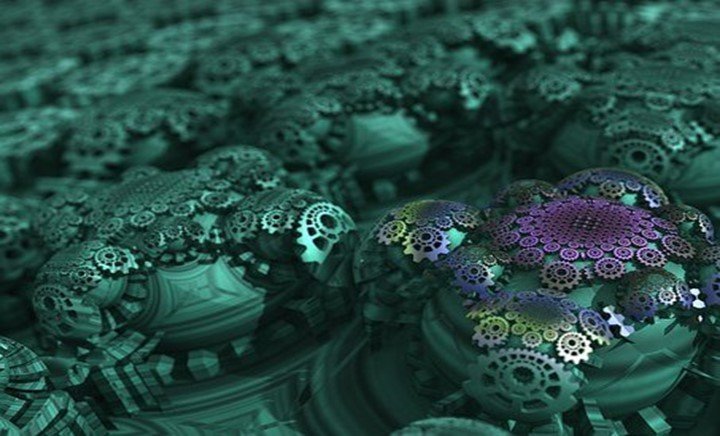Nanotechnology is one of the most exciting technology discoveries today. The technology understands, combines, and shapes matter at the molecular and atomic state. Nanotechnology has seen an evolution in different sectors such as manufacturing, agriculture, science, medicine, engineering, robotics, and computing.
However, as with the new technology, the benefits do not come without some disadvantages. The continuous innovative advances continue to excite and concern a lot of users. Let’s have a look at the advantages and disadvantages of nanotechnology in today’s world.
Pros of Nanotechnology
1. Manufacturing: Nanotechnology is already in use in the manufacturing industry. Robots advancement would help in the production of novel machines and materials that are more superior, more durable, stronger, and stable.
2. Energy: Nanotechnology applications in nano energies may transform the way we use and obtain energy. It would make plastic and photovoltaic solar cells more economical by reducing the production and construction costs. The panels would also be more efficient due to increased electric storage capacity.
3. Medical advantages: The main aim of nanotechnology is to improve the health of human beings by working from the molecular level. It has the potential to heal genetic conditions by fixing damaged genes or cells. It also provides the possibility of faster and more accurate surgeries, universal immunity, end of illnesses, and refined drug production that would see people having fewer side effects.
4. Computing and electronics advantages: The nanotechnology revolution will be applied in computers, memory storage, displays, and energy production. The main aim is to increase memory chip density, reduce weight and power consumption.
5. Elimination of poverty: Continuous advancement in nanotechnology keeps on increasing job opportunities. Employed people can meet their daily needs from the wages received. Knowledge gained in this technology, when shared, can help reduce poverty as people would be able to manipulate matter to create food and water. This type of equality would see to it that there are poverty eradication and equality achievement.
6. Increase in self-repairing technology: Nanotechnology is a developing field with tremendous potential to be applied in the aerospace and renewable energy industry. Self-repairing ability is inspired by our biological systems, where the healing process is triggered when damage occurs. Such advancement would help reduce human interventions in situations that would have otherwise been dangerous. for example, fixing an aircraft’s problem.
7. Creates change on the cellular level: Nanotechnology can restructure items at a cellular level. It makes it possible for the recycling of trash to occur whereby it can be converted to usable goods. The advancement will see almost the impossible being achieved, like transforming organic cells into consumable goods. It would be an easier world as one item can be used to produce different goods that would meet many needs.
8. Food industry advantages: The food production industry is considered one of the most sensitive in nanotechnology. Technology has made a revolution in agriculture through precision farming and Nano delivery systems. It also offers a new set of tools to manipulate plant genes using nanofibers, nanoparticles, and nanocapsules. The machines monitor and minimize pesticide use, antibiotic use and control plant disease hence taking agriculture to the next level and increasing productivity.
Cons of Nanotechnology
1. Privacy and security concerns: Nanotechnology raises the possibility of microscopic recording devices that would be undetectable. Atomic weapons would be more accessible and uncomplicated to make when in the wrong hands. Cellular destruction can effortlessly happen as it would be easier to carry out mass destructions. The possibility of self-replicating weapons being made would become difficult to counter-attack, especially when such measures have not been considered.
2. It may render current energy technology obsolete: Most sectors in the world depend on fossil fuels. The risk of current obsolete systems happening is high as most households would shift to nano energy. Such occurrences would be devastating to sectors that would still be reliant on fossil fuel as mass production in consumables, food, oil, and precious metals could become worthless due to ease of reproduction through molecular manipulation.
3. Environmental effects: Nanotech is developed using toxic waste. It is a possibility that its advancement would negatively affect the environment as new toxins and pollutants may be released into the atmosphere. Air pollution would increase the mortality rate due to the increase in respiratory conditions.
Scientists have concerns about the short and long-term effects of nanotech in the environment due to recent laboratory findings; hence another reason to be disadvantageous.
4. Economic concerns: Just like any other technology before it, nanotech would create massive economic changes. The initial production process and products may be expensive though this tends to change as the market adapts. More demand for nanoproducts would mean companies have to shift to nanotech. This colossal market change would lead to the closure of some businesses specializing in the previous technology and materials as they would be obsolete.
5. Health concerns: Scientists are concerned that there is a possibility of unexplained and untreatable diseases occurring when people inhale nanoparticles. There is no guarantee that more advancement would not fail to cause new conditions that would be harder to treat and control in future
6. Social problems: The possibility of a nation hoarding this technology would give rise to social strife among increasing wealth gaps. It would create a large disparity in socioeconomic development.
7. Ethical issues: Nanotech presents concerns about ethical behavior. The possibility of altering human genetic make-up by engineering specific traits is worrying.
8. Technological concerns: High technology advancements and operations are subject to the same drawbacks as any computing system. Nanotech would also face the risk of hacking. This occurrence may lead to company secrets being exposed, and normal manufacturing operations interfered.
9. Loss of employment: Nanotechnology would lead to high unemployment as most people in the manufacturing, food, and agriculture sectors would end up losing their jobs. The use of nanobots would replace the need for human labor.
10. High costs of research, production, maintenance, and advancement would be a must for the success of nanotechnology hence presenting a challenge.



